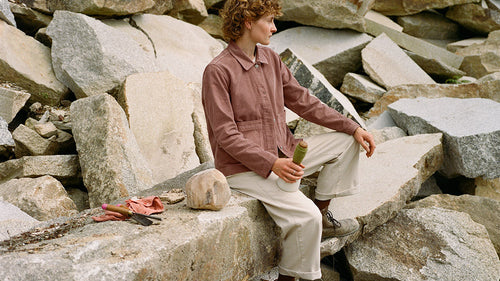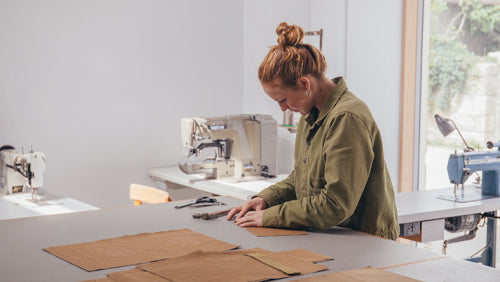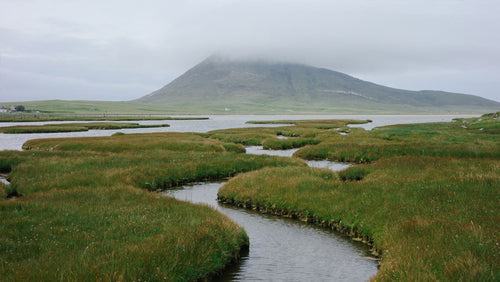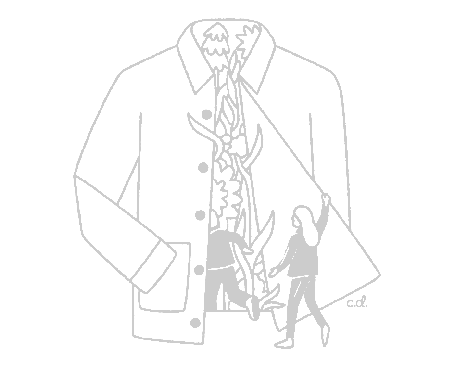
Is it me or is the perfect white tee impossible to find?
Since we met, I’ve been amazed at how many T-shirts Huw has tried.
Packages arrive at least every month containing a new version. Maybe this one would be heavy enough, soft enough, boxy enough? Maybe this one won’t shrink or lose its shape after one wash?
Some have come very close, but they never quite tick all the boxes.
Seeing how hard this seemingly simple task was proving to be, we decided to find out more about how a T-shirt is made. From beginning to end.
Last February, we headed to Amsterdam to visit Fashion For Good, to learn about the journey of your average white T-shirt.
We learnt about the resources used. The time taken. The miles traveled.
It takes 8,700 miles to make a single tee.
That’s when we realised the perfect white tee we’d been looking for was only skin deep. It was all based on the fit. Don’t get me wrong, that's still super important, but it’s not even half the story.
Our first Paynter Experiment.
Deciding to work on the fit later, we started by looking at where we could make the biggest impact to make a more sustainable T-shirt: the mileage.
What if you could cut that mileage in half?
Miles Down. Quality Up.
After months of researching, we’ve found a way to get the miles right down. After sourcing organic cotton from a farm in Turkey, from milling onwards, it is spun into yarn, dyed, knitted into a beautiful heavyweight fabric which is then cut and sewn into a t-shirt within six miles in Northern Portugal.
Yup. Six miles. (It turns out that it also takes 6 miles of yarn to make one t-shirt).
Introducing the Six Mile Tee.
After months of fittings, wear testing, and importantly, no shrinking, the Six Mile Tee is ready. We’ll share more about the fit, fabric and details next week.
This is not the perfect white tee.
To us, the perfect tee uses as little resources and leaves as small a trace as possible on our planet. We couldn't be more proud of this tee, but we know that mileage only counts for a fraction of the the T-shirt's impact.
We’re taking this one step at a time. And with each Batch of tees we make, we’ll iterate on our goal of a tee with the smallest impact. The limited Batches will map the iterations and improvements as we learn.
This is not the perfect white tee. But it's the start of our journey towards getting there.
Until next time, stay well.
Becky & Huw



